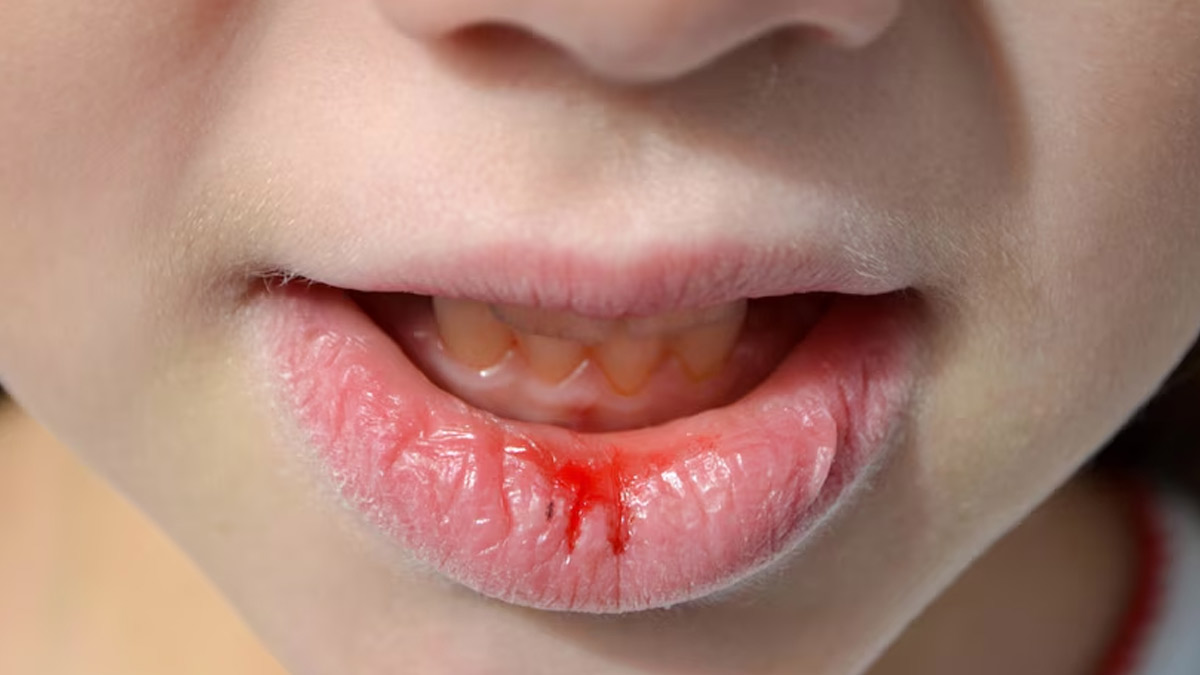
Lip cancer, though not as commonly discussed as other types of oral cancers, is a serious condition that often goes unnoticed until it reaches an advanced stage. This form of cancer can significantly affect not just the lips but also the overall quality of life, making early detection and treatment crucial. From prolonged sun exposure to lifestyle habits like smoking and alcohol consumption, various factors can contribute to the development of lip cancer.
Table of Content:-
To understand what is lip cancer, its signs, causes and treatment, the OnlyMyHealth team interacted with Dr Biswajyoti Hazarika, Chief – Head and Neck Surgery (Surgical Oncology), Artemis Hospitals, Gurugram.
Dr Hazarika explained, “Lip cancer is a type of oral cancer that originates on the lips, particularly the lower lip, as it tends to be more exposed to sunlight in comparison to the upper lip. Like other cancers, lip cancer occurs when abnormal cells grow uncontrollably, forming a tumour. It falls under the category of squamous cell carcinoma, which accounts for most cases of lip cancer and arises in the thin, flat cells lining the lips and mouth.”
Signs and Symptoms of Lip Cancer

Early detection of lip cancer is crucial for successful treatment, so being aware of its symptoms is important. According to Dr Hazarika, common signs of lip cancer include:
1. A persistent sore or lesion on the lips that does not heal.
2. Lumps or thickened areas on the lips that may feel firm or rough.
3. Discoloration, such as red, white, or darker patches on the lips.
4. Pain or tenderness in the lips, especially when eating or drinking.
5. Numbness or tingling around the lips or mouth area.
6. Bleeding from the lips, especially if a sore or lump has developed.
7. Changes in the appearance or texture of the lips, such as crusting or peeling.
These symptoms can easily be mistaken for less severe conditions. Therefore, Dr Hazarika recommended that it is essential to consult a healthcare provider for an accurate diagnosis if any of these signs persist.
Also read: Mouth Cancer: What Are The Symptoms To Watch Out For
Causes and Risk Factors

The development of lip cancer is associated with several risk factors. The most significant causes include:
1. Exposure to ultraviolet (UV) radiation: Prolonged exposure to sunlight or tanning beds can damage the cells of the lips and increase the risk of lip cancer.
2. Tobacco use: “Both smoking and chewing tobacco have been strongly linked to lip cancer due to the carcinogens in tobacco products that can cause mutations in lip cells,” Dr Hazarika said.
3. Alcohol consumption: Heavy alcohol use, especially when combined with smoking, significantly raises the risk of lip cancer.
4. HPV infection: “Certain strains of the human papillomavirus (HPV) have been associated with an increased risk of oral and lip cancers,” Dr Hazarika explained.
5. Gender and age: “Lip cancer is more common in men and in people who are over 50, although it can occur at any age,” Dr Hazarika said.
Also read: Mouth Sore vs Mouth Cancer: How To Tell The Difference
Treatment Options

Treatment for lip cancer depends on factors like the stage of cancer, its location, and the patient’s overall health. Common treatment options listed by Dr Hazarika include:
1. Surgery: Surgical removal of the tumour is the most common treatment, especially for early-stage lip cancer. In more advanced cases, larger portions of the lip or surrounding tissue may need to be removed, which can require reconstructive surgery.
2. Radiation therapy: High-energy radiation is used to target and destroy cancer cells. Radiation therapy is often used after surgery to eliminate any remaining cancer cells or as the primary treatment if surgery is not possible.
3. Chemotherapy: Drugs are used to kill cancer cells or stop their growth. Chemotherapy may be combined with radiation therapy or used to treat cancer that has spread to other areas.
4. Targeted therapy: This approach involves drugs that specifically target cancer cells without affecting normal cells. It is sometimes used when lip cancer has spread or recurred.
Conclusion
Lip cancer, though serious, is highly treatable, especially when detected early. Awareness of the risk factors, symptoms, and treatment options can significantly help in improving outcomes for those affected. Preventive measures, such as reducing sun exposure, avoiding tobacco and alcohol, and maintaining regular check-ups, play a vital role in lowering the risk of developing lip cancer.
Also watch this video
How we keep this article up to date:
We work with experts and keep a close eye on the latest in health and wellness. Whenever there is a new research or helpful information, we update our articles with accurate and useful advice.
Current Version